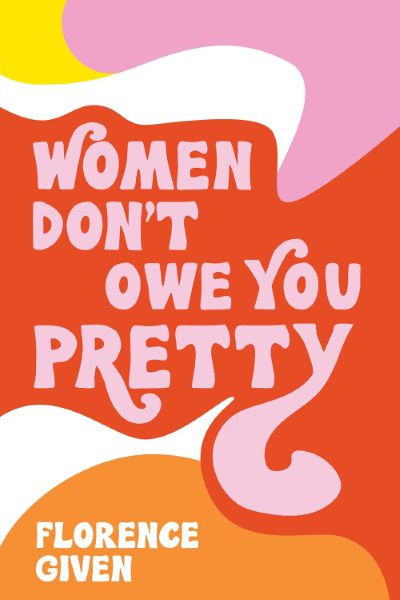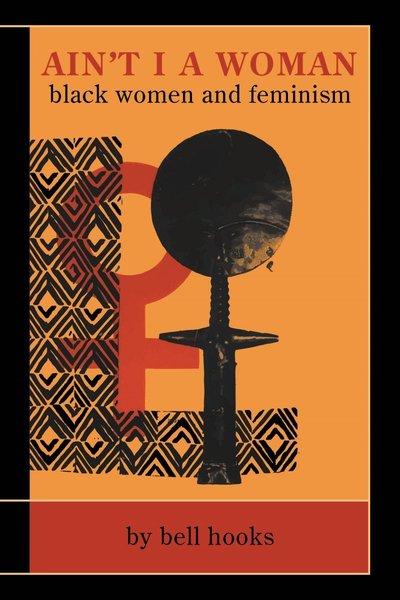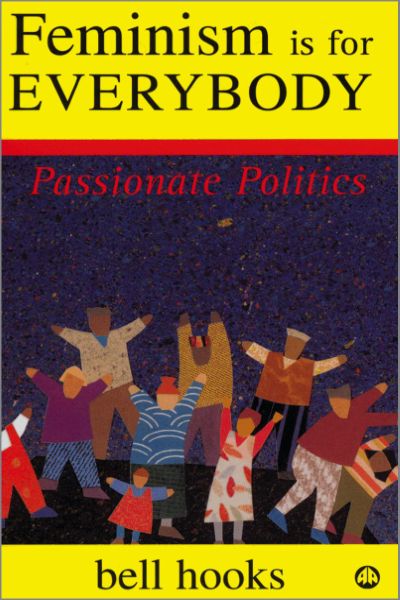Women Don't Owe You Pretty
A vibrant manifesto for intersectional feminism that challenges beauty standards, toxic relationships, and societal expectations. Given combines personal insight with political analysis to encourage women to reject the pressure to be 'pretty' for others and embrace their authentic selves.

📝 Book Review
“Women Don’t Owe You Pretty” emerged as a cultural phenomenon when Florence Given published this bold manifesto in 2020, capturing the zeitgeist of young feminist activism and body positivity. The book’s immediate success—selling 100,000 copies within six months and remaining on The Sunday Times bestsellers list for twelve consecutive weeks—reflects its resonance with a generation of women seeking to reject traditional beauty standards and societal expectations. Given’s work stands as both a personal journey of self-discovery and a political call to action for intersectional feminism.
Florence Given, a British activist and illustrator, brought a unique perspective to feminist discourse through her background in visual arts and digital activism. Her experience building a significant social media following allowed her to understand intimately how beauty standards and gender expectations operate in digital spaces, while her artistic background enabled her to communicate complex ideas through accessible visual and textual formats. Given’s youth and position as part of Generation Z brought fresh energy to feminist conversations, speaking directly to young women navigating contemporary challenges around identity, relationships, and self-worth.
The book’s approach combines personal memoir, political analysis, and practical advice, creating a hybrid format that reflects contemporary feminist writing’s movement beyond traditional academic boundaries. Given’s style is deliberately accessible and conversational, using social media-influenced language and aesthetics to reach audiences who might not engage with more traditional feminist texts. This approach has proven influential in demonstrating how feminist ideas can be communicated effectively to younger generations through formats that reflect their communication preferences and cultural experiences.
Rejecting the Performance of Femininity
The central thesis of “Women Don’t Owe You Pretty” revolves around Given’s argument that women must reject the societal pressure to perform femininity for others’ benefit. She challenges the idea that women exist to be aesthetically pleasing, arguing instead that women’s primary obligation is to themselves and their own authentic expression.
Given’s analysis of beauty standards reveals how contemporary culture continues to judge women’s worth primarily through their appearance, despite decades of feminist progress in other areas. She demonstrates how beauty expectations have evolved but not disappeared, with contemporary standards often disguised as “self-care” or “wellness” while maintaining the same underlying requirement that women’s bodies serve others’ visual pleasure.
The book explores how the pressure to be “pretty” extends beyond physical appearance to encompass behavior, personality, and even political views. Given argues that women are expected to be palatable, non-threatening, and accommodating in ways that limit their ability to express authentic opinions, set boundaries, or pursue their genuine interests and ambitions.
Through personal anecdotes and cultural analysis, Given reveals how the performance of femininity requires enormous energy and resources that could otherwise be directed toward personal fulfillment, creative expression, and meaningful relationships. This analysis provides a framework for understanding how beauty standards function as a form of social control that limits women’s potential and autonomy.
Intersectionality and Inclusive Feminism
Given’s approach to feminism explicitly centers intersectionality, recognizing that women’s experiences are shaped by multiple identities including race, class, sexuality, disability, and other factors. She argues that feminism must address the ways these identities interact to create different experiences of oppression and privilege.
The book acknowledges how beauty standards affect women differently based on their racial, ethnic, and cultural backgrounds, with particular attention to how white supremacist ideals have shaped conventional beauty norms. Given explores how women of color face additional pressures to conform to Eurocentric beauty standards while often being excluded from mainstream beauty conversations entirely.
Given’s discussion of body diversity addresses how size discrimination intersects with sexism to create particular challenges for larger women, while her analysis of disability highlights how ableist assumptions about health and beauty further marginalize disabled women. These discussions demonstrate her commitment to feminism that includes all women rather than privileging the experiences of those who most closely approximate societal ideals.
The intersectional approach extends to Given’s analysis of sexuality and gender identity, with discussions of how heteronormative assumptions affect women’s self-perception and how LGBTQ+ women face unique challenges in navigating beauty standards and relationship expectations.
Toxic Relationships and Emotional Labor
A significant portion of the book focuses on identifying and addressing toxic relationship patterns, with particular attention to how gender socialization creates dynamics where women often sacrifice their own needs to accommodate others. Given provides practical guidance for recognizing manipulation, gaslighting, and emotional abuse while encouraging readers to prioritize their own emotional well-being.
Given’s analysis of emotional labor reveals how women are often expected to manage others’ feelings, maintain social harmony, and provide emotional support without reciprocation. She demonstrates how this expectation begins in childhood and continues throughout women’s lives, affecting their romantic relationships, friendships, family dynamics, and professional interactions.
The book offers concrete strategies for setting boundaries, including scripts for difficult conversations and frameworks for evaluating relationships based on mutual respect and support rather than societal expectations about women’s nurturing roles. Given emphasizes that healthy relationships require both parties to take responsibility for their own emotional regulation and growth.
Through her examination of dating culture and romantic relationships, Given critiques the ways contemporary dating often reproduces traditional gender dynamics despite surface-level changes. She encourages women to center their own desires and standards rather than adapting themselves to meet others’ expectations or preferences.
Body Positivity and Self-Acceptance
Given’s approach to body positivity goes beyond surface-level encouragement to address the systematic ways that diet culture and beauty industries profit from women’s insecurities. She reveals how messages about self-improvement and wellness often disguise the same body-shaming tactics that have always been used to control women’s behavior and spending.
The analysis includes examination of how social media both challenges and reinforces beauty standards, with platforms simultaneously providing spaces for body-positive activism while creating new pressures for visual perfection. Given provides practical advice for curating social media environments that support rather than undermine self-acceptance.
Given’s discussion of diet culture reveals how weight-loss messaging has evolved to use language of health and empowerment while maintaining the same underlying assumptions about body size and worth. She encourages readers to examine their own relationship with food, exercise, and body image through a feminist lens that questions whose interests are served by various body-related practices.
The book addresses the complex relationship between self-care and self-improvement, helping readers distinguish between practices that genuinely serve their well-being and those that reproduce harmful beauty standards under the guise of personal development.
Sexuality and Sexual Agency
Given provides frank discussion of women’s sexuality that challenges both traditional sexual repression and contemporary pressures around sexual performance. She argues for women’s right to define their own sexual desires and boundaries without judgment or external pressure.
The analysis addresses how pornography and hookup culture have created new expectations for women’s sexual behavior that may not align with their actual desires or comfort levels. Given encourages women to explore their authentic sexual interests rather than performing sexuality for others’ satisfaction.
Given’s discussion of consent extends beyond simple yes/no frameworks to address the complex ways that societal pressures, internalized messages, and power dynamics affect women’s ability to recognize and communicate their genuine desires. She provides guidance for developing sexual self-awareness and communicating boundaries effectively.
The book addresses the double bind women face around sexuality, where they are simultaneously pressured to be sexually available and judged for sexual expression. Given’s analysis reveals how this contradiction serves to maintain male control over women’s bodies and choices while placing women in impossible positions.
Career and Ambition
Given challenges the ways women’s professional ambitions are often undermined by expectations about feminine behavior, appearance, and priorities. She argues that women must reject pressure to appear humble, accommodating, or apologetic about their success and ambitions.
The analysis includes examination of how workplace discrimination operates through seemingly neutral policies and cultural expectations that disproportionately affect women. Given provides practical advice for navigating professional environments while maintaining personal integrity and challenging unfair treatment.
Given’s discussion of entrepreneurship and creative work addresses how women can build careers that align with their values while recognizing the systematic barriers they may face. She emphasizes the importance of financial independence as a component of overall autonomy and self-determination.
The book addresses the particular challenges faced by women in male-dominated fields while also examining how traditionally feminine careers are often devalued and underpaid. Given’s analysis reveals how these patterns reflect broader societal assumptions about women’s work and capabilities.
Mental Health and Self-Care
Given provides nuanced discussion of mental health that acknowledges both the importance of addressing psychological well-being and the ways that individualistic approaches to mental health can obscure systematic causes of women’s distress. She argues for self-care practices that genuinely support healing rather than adding additional pressure or expense.
The book addresses how trauma, particularly gender-based trauma, affects women’s self-perception and relationships. Given encourages readers to seek professional support when needed while also providing practical tools for daily emotional regulation and self-compassion.
Given’s analysis of anxiety and depression includes examination of how societal pressures contribute to women’s mental health challenges, while her discussion of therapy and healing emphasizes the importance of finding culturally competent and feminist-informed support.
The book provides concrete strategies for developing healthy relationships with oneself, including practices for challenging negative self-talk, building self-trust, and creating supportive daily routines that prioritize genuine well-being over external validation.
Social Media and Digital Life
As someone who built her platform through social media, Given provides insider perspective on how digital spaces both challenge and reinforce traditional gender expectations. She offers practical guidance for using social media in ways that support rather than undermine self-esteem and authentic expression.
The analysis includes examination of how influencer culture and digital beauty standards create new pressures for visual perfection while often disguising these pressures as empowerment or authenticity. Given helps readers develop critical media literacy skills for evaluating the messages they consume online.
Given’s discussion of online activism addresses both the opportunities and limitations of digital feminist organizing, providing guidance for engaging in meaningful activism while protecting personal well-being and avoiding performative behaviors.
The book addresses the ways digital harassment disproportionately affects women, particularly women of color and LGBTQ+ women, while providing strategies for online safety and community building that centers marginalized voices.
Practical Application and Daily Life
Throughout the book, Given provides concrete tools and strategies for implementing feminist principles in daily life. These include communication scripts, boundary-setting techniques, and frameworks for evaluating relationships and opportunities through a feminist lens.
The practical guidance extends to financial literacy and independence, with Given providing basic information about budgeting, saving, and building financial security as components of overall autonomy. She emphasizes how financial dependence can limit women’s ability to make authentic choices about their lives and relationships.
Given’s advice on fashion and personal style encourages readers to dress for themselves rather than others while recognizing the complex ways that appearance affects social and professional interactions. She provides guidance for navigating these realities while maintaining personal integrity and self-expression.
The book includes exercises and reflection questions designed to help readers identify their authentic values, desires, and goals separate from societal expectations and external pressure.
Cultural Impact and Reception
“Women Don’t Owe You Pretty” has had significant cultural impact, particularly among young women seeking accessible entry points into feminist ideas. The book’s success demonstrated the market demand for feminist content that speaks directly to contemporary concerns about social media, dating culture, and professional development.
Critics have praised Given’s ability to translate complex feminist concepts into actionable advice while noting the book’s particular relevance for Generation Z readers. The visual elements and social media-influenced design have been recognized as innovations in feminist publishing that reflect contemporary communication styles.
Some academic feminists have raised questions about the individualistic focus of certain advice while generally praising Given’s commitment to intersectionality and inclusion. These discussions reflect broader conversations about how contemporary feminism balances personal empowerment with systematic analysis and collective action.
The book’s international success has sparked conversations about how feminist ideas travel across cultural contexts and how digital activism enables global feminist conversations that transcend national boundaries.
Contemporary Relevance
“Women Don’t Owe You Pretty” arrived at a moment when young women were increasingly questioning traditional expectations about femininity, relationships, and success. The book’s timing during the COVID-19 pandemic, when many people were reconsidering their priorities and relationships, contributed to its resonance and impact.
Given’s work continues to influence discussions about body positivity, toxic relationships, and authentic self-expression in digital spaces. Her approach has inspired other young feminists to create accessible content that bridges personal experience with political analysis.
The book’s emphasis on intersectional feminism has contributed to broader conversations about inclusion and diversity within feminist movements, particularly around the need to center marginalized voices and experiences in feminist activism and theory.
Through her bold and accessible approach to contemporary feminist issues, Florence Given has created a work that speaks directly to young women’s experiences while providing practical tools for personal and political transformation. “Women Don’t Owe You Pretty” stands as both a personal manifesto and a cultural intervention, demonstrating how feminist ideas can be communicated effectively to new generations while maintaining commitment to intersectional analysis and systematic change. Given’s work shows the continued relevance and evolution of feminist thought in addressing contemporary challenges around identity, relationships, and self-determination.
Book Info
Related Topics
🛒 Get This Book
 Buy on Amazon
Buy on Amazon Related Books
Book Discussion
Share your thoughts and opinions on this book and exchange insights with other readers
Join the Discussion
Share your thoughts and opinions on this book and exchange insights with other readers
Loading comments...


